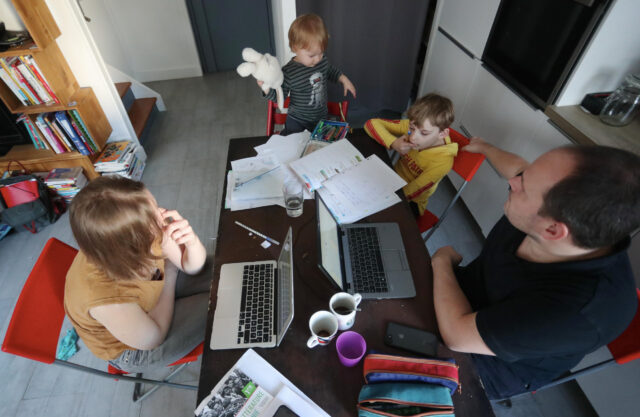
With remote work a massive trend at the moment, we better remind ourselves that not every job can be done from home.
The world of work has gotten significantly smaller in recent months. With COVID-19 changing the world of work for good, many of us were forced to work remotely, even though we didn’t want to. However, a year and a half from the onset of the virus, some companies are still toying with the idea of making remote work permanent.

Is remote work for everyone? Here is why we don’t think so:
- You need to be able to organize your time well and this might mean that it’s impossible to be effective when working remotely. If you’re not good at doing what you say you’re going to do, stay in the office and stick with the 9-5.
- If you cannot count on yourself, then don’t expect others will be able to either! Productivity levels plummet when nobody trusts each other or knows when they can rely on one another. Be reliable and trust them back!
- We all know there are some difficult characters in every company who bring everybody else down by constantly complaining about everything and making life miserable for everyone else. These people should be kept away from remote work, even if they are good at what they do. It’s simply not worth it!
- If you haven’t got a strong enough network of friends and colleagues outside your office to keep you occupied with social engagements when the working day is done, this is a sure-fire recipe for disaster and boredom. Life is too short to spend it alone in a hotel room!
However, we are here to tell you that not all work can be done remotely. Regardless of international trends, some jobs need to be hands-on.
Let’s List Some More Reasons We Can’t All Work WFH
Here are eight of the best reasons that not all work can be done remotely

1. Mental Health
While the top answer ought to be something along the lines of practicality, we thought it was far more important to point out the human cost of confusing the boundaries between work and home life. If you are suffering from burnout – like 52% of all workers who had to work through Covid – then you need to act. Consider a coworking space with osdoro.com.sg as an alternative, where you can rent out an office of your own. If not, think about moving job. Nobody’s mental health is worth risking for a job.
2. Practicality
Although business automation has come a long way in the last few years, we are not yet at the stage where we can replace ordinary workers with AI. Some jobs are hands-on. For example, if you were a waitress, you couldn’t perform that role working from home. The world will always need taxi drivers, bar staff, and those who work in retail. A 100% remote workforce just would not work.
3. Safety

There are those of us who do not live in a safe household. Bitter as it is to admit it, in 2024, there are still women, children, and men are living within a threatening environment. If your home isn’t safe to be in, then it’s not safe to work in. One peer-reviewed study written in April 2024 found that symptoms had already started to appear. Domestic violence in China tripled between February and 2024 and February 2019. In Singapore, by April 2024, there had been a 33% increase in DV calls to UN Women. So some people do not live in safe households. Remove work is a little ableist in that regard.
4. Busyness
Some people have busy homes. Your home could be as safe as – well, as safe as houses – but it could be engaged. There could be people coming and going all day long. You might have several relatives that live with you. Or maybe you don’t have your bedroom or office space that you can work in. Again. The possibility of remote work assumes that we can all create Home Office space, but what if you don’t have that space?
5. Employers

Not all employers fully understand the concept that we could all work remotely. The presence of software to spy on employees while they work remotely is proof that there are employers out there who are not ready to embrace remote work. So you could have a job that’s perfectly suited to remote work and an employer who doesn’t trust you. These are not a good combination for future success.
6. The Internet
The world of work is quickly becoming international. A remote worker must have access to the internet, or their career will be limited. While mobile data limits are getting bigger and better, many people still don’t have internet in the areas they live. This might be because they’re too rural, too expensive, too poor, or all of these things combined. So you could get a job that’s perfectly suited to you but which requires a broadband internet connection. If you do not have this at your fingertips (or even within shouting distance), there is no way for you to work remotely.
7. Inept Management

Even if you get a job that is perfect for you and your employer knows how remote work works… there could still be idiots at the helm who don’t get it. They might think that a few days of working from home justifies never seeing you again or that it justifies no communication until you come back to the office. So if your job is appropriate for remote work, there are still some barriers ahead.
8. No Critical Mass
Finally, although business automation has made strides lately, it will be years before we all have robots on our desks (or in our pockets). Until then, businesses will need workers on-site at their offices. These people either work remotely on the side or travel every day for work. As long as these people exist, remote workers are slightly harder to find. Their cities literally have a monopoly on them and could charge any price they want for their time and abilities. If your city doesn’t have a lot of remote workers, then there will be a shortage of these workers. If you’re one of those few remote workers, then businesses will pay through the nose for your time and abilities.
So we can’t all work remotely… at least not on a full-time basis, but we do need to adapt our lives so that we can enjoy as much freedom as possible.









